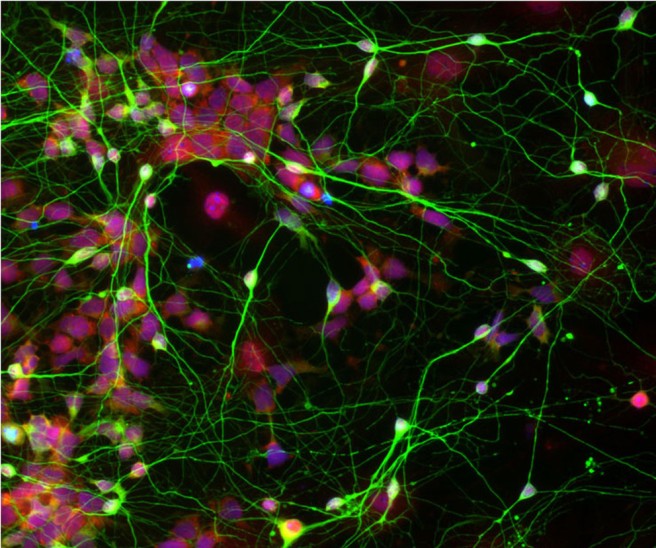BY: SOPHIA VOUMVAKIS
When I suffered my traumatic brain injury (TBI) in 2011, I believed that the cells in my brain which had been damaged were irreparable. But recent research suggests that the brain can repair itself, and that what was once damaged may be able to heal.
Before we explore the scientific evidence, we need to have a rudimentary understanding of how the brain works. Very simply, the brain is made up of two main groups of cells, neurons and glial. When these cells work together, the electrical activity they create enables us to move, think, emote, feel, remember – essentially, to live.

However when one of these cells gets damaged or dies, the result is damaged wiring and connections. If the damaged nerve is a motor neuron, then motor functioning is impaired. If the myelin cell is damaged, diseases such as Multiple Sclerosis (MS) develop.
Speaking at a TED Conference in July 2013, Dr. Siddharthan Chandran, director of the Centre for Clinical Brain Sciences, describes a case of a patient with MS whose brain scan showed myelin damage. Subsequent scans showed some repair in the area of the brain which had originally displayed damage. This repair had occurred with no medical intervention, which led Dr. Chandran to conclude that “the brain can repair itself, just not well enough.”
Dr. Chandran believes this discovery will lead to a new direction in finding therapies to treat brain disorders. Human stem cells, which can can self-renew to create new bone or liver cells, show great promise in this endeavour. Scientists hope that one day stem cells can be used to create new motor nerve or myelin cells.
In 2006, Japanese scientist Dr. Shinya Yamanaka discovered that just four ingredients can convert any adult cell into a master stem cell. This means that scientists can create a stem cell from any of us, and then make that cell relevant to our disease or injury, such as a motor neuron or a myelin cell. Yamanaka won a Nobel Prize for his work in 2012.
A recent clinical trial by Dr. Chandran, in collaboration with other scientists, illustrates this point. Researchers took stem cells from the bone marrow of patients with MS, grew myelin cells in the lab, and then injected them back into the patients’ veins. To measure whether the intervention was successful, the scientists examined the optic nerve. The size of the optic nerve was measured before the injection of the lab grown myelin cells, three and six months post injection (patients with MS usually have vision problems). Results showed the optic nerve had stopped shrinking, which Dr. Chandran believes is the result of the injected myelin cells, which promoted the brain’s own stem cells to do their job of laying down more myelin.

In addition, scientists can now use human cells to find ways to promote and activate the stem cells, which are already in our brain, to repair damage. Dr. Chandran believes this technique could replace animal testing in the future.
Although Dr. Chandran discussed these new advances in the treatment of brain disorders such as MS and Parkinson’s, these scientific advances may have applicability to the brain injury as well. To quote Dr. Chandran, “the day we can repair the damaged brain is sooner than we think.”
Since her TBI in 2011, Sophia has educated herself about TBI. She is interested in making research into TBI accessible to other survivors.
Filed under: Awareness, Research Tagged: brain disorders, brain trauma, Dr. Shinya Yamanaka, Dr. Siddhartha Chandran, MS, stem cells, TED Talks
![]()
Source: BIST Blog




